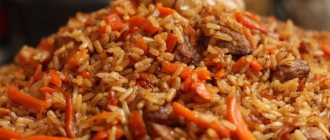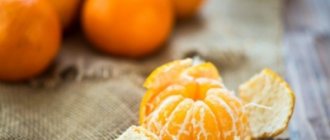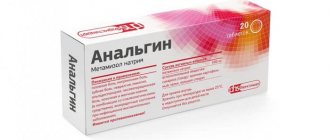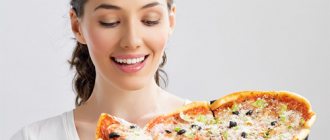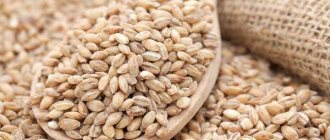Why is coughing dangerous during pregnancy?
Often colds are accompanied by a cough, which causes inconvenience, especially for expectant mothers. After all, during the period of bearing a baby, a woman’s immune system is most vulnerable. Therefore, even slight hypothermia can cause a cold.
It is important to understand that there is no such diagnosis or disease as cough. It is always a consequence or reaction of the body to some pathogen. For women during pregnancy, most expectorant or cough syrups and tablets are prohibited. Some people prefer traditional medicine, but they do not always help. There are also those who use medications intended for children under 3 years of age, but they can also harm the fetus developing in the womb.
Why is a cough dangerous during pregnancy?
miscarriage, premature birth, intrauterine infection (cough is a consequence of a bacterial or viral infection, so treatment should be aimed at the pathogen that affects the respiratory system);
an increase in uterine tone, which can lead to oxygen starvation of the fetus or cause disturbances in its development;
increased toxicosis, since coughing causes a gag reflex.
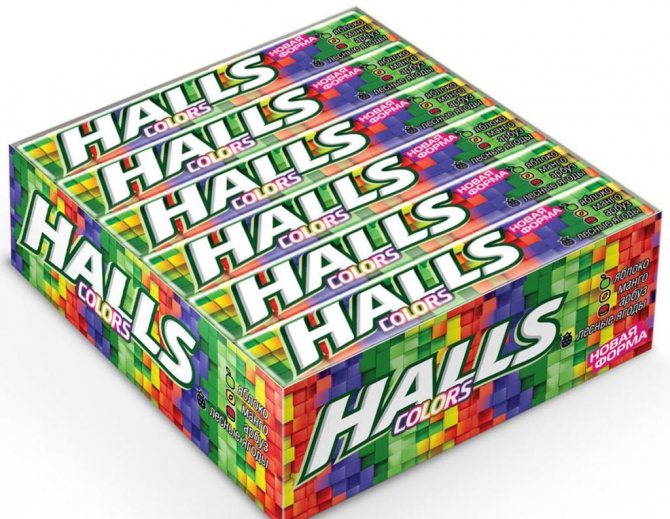
Its use is justified in the following cases:
cough is not caused by illness, but, for example, by a broken voice or mechanical damage to the mucous membrane;
therapy aimed directly at the disease is carried out, but lozenges are used to relieve spasms;
the expectant mother is not allergic to the components of the drug;
they were prescribed by a doctor, and the risk to the fetus was assessed.
A product intended for resorption every two hours, but not more than 10 lozenges per day. They can have different flavors: melon, wild berries, honey and lemon, watermelon and extra-menthol.
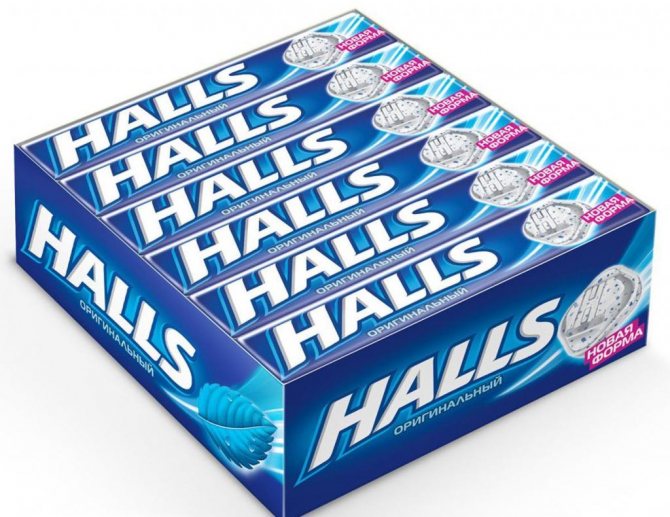
The instructions for the drug indicate that the lollipops during pregnancy are taken only as prescribed by a doctor. Many women take them due to the availability of the product. But you should understand that they do not fight the disease that caused the cough, but only relieve unpleasant symptoms.
In any case, you should consult a doctor, since in this case the mother is responsible not only for her own health, but also for the baby.

Despite the fact that lollipops are not classified as medications, they do contain certain components that are undesirable for use while pregnant. This includes flavors, colors, E additives and medicinal herbs. They can have a negative impact on the development of the baby in the womb and the course of pregnancy. They are also not recommended during lactation.
How to lose weight while breastfeeding?
When choosing a diet for the period of breastfeeding, it is necessary to abandon overly strict nutritional systems that block access to the body of important nutrients, and also create stressful conditions for the mother’s body. It is necessary to reduce the caloric content of food intake due to harmful and potentially undesirable foods, which at this stage of development include fatty, sweet, flour products, as well as smoked, fried and canned foods. Weight loss should be carried out gradually and without sudden changes - it is not by chance that adipose tissue accumulates in the mother’s body during pregnancy. Playing a protective function, it represents a kind of reserve of nutrients, which will subsequently be used to support the child and restore the woman’s body after childbirth. That is why their burning will occur quite slowly and attempts to speed up this process will not give visible results, but will jeopardize the woman’s health.
Which variety should you choose?

Dissolving tablets can serve as a kind of first aid for quickly relieving a cough and the discomfort it causes. It is also worth considering whether the mother is allergic to any component. It could be citrus fruits or honey. Then it is better for him to refuse such lollipops. You should also not take extra-menthol, since they have a strong effect on the mucous membrane, which can cause a gag reflex in the expectant mother.
Preparing a diet during breastfeeding

How to lose weight while breastfeeding?
First of all, it is worth noting that any diet during this period gives way to a healthy and balanced diet. The key condition of a dietary diet, compiled taking into account the desire of a pregnant woman to lose weight, is the high content of all basic substances, as well as vitamins and microelements.
To begin with, you need to exclude foods with high fat content from your diet. However, in this matter, a sense of proportion is more important than ever: a deficiency of fat threatens a nursing mother with increased fatigue and irritability. That is why it is not advisable to completely exclude them from the diet. It would also be a good idea to limit the consumption of canned food, excessively sweet, salty, and spicy foods.
On the contrary, protein products, as well as fruits and vegetables rich in vitamins and microelements, should be mandatory components of the diet. In order to minimize the risk of a child developing allergies, you should also pay attention to wholemeal bread and pasta. An invariable rule for any nutritional system is also the consumption of large amounts of liquids (especially of natural origin). And also moderate physical activity. Make it a rule to take walks with your child in the fresh air, walk more often and the results will not be long in coming.
Alternative

warm milk with honey or ginger;
ordinary mint candies, which not only freshen breath, but also envelop the mucous membrane of the larynx, thereby helping to reduce the appearance of cough;
Melting sugar in a spoon will help relieve a sore throat (this remedy is often used for children).
It is worth remembering that before taking any medicine, you must first assess the risks for the baby.

You became a mother, and advice from “well-wishers” about the dangers and benefits of breastfeeding began to pour in from everywhere.
Many people have probably already told how breasts deteriorate during feeding, how difficult and painful it is to feed a baby, and many other “horror stories.”
Remember that everything is individual for each woman, and discomfort usually appears only in the first days of feeding, when the body gets used to its new role.
To make breastfeeding a great happiness for you, and not “torture”, carefully prepare for this process.
And we will try to dispel some of your fears with the help of recommendations from expert Irina Gordienko.
Horror story #1. Breastfeeding ruins breast shape
If we express the remaining milk today, tomorrow we will produce even more milk, so it is better not to do this
The shape of the breast can be spoiled by rough handling: if we allow the child to tug on the nipple or pull it back, as well as by systematic pumping unnecessarily.
Not so long ago (our mothers went through this), everyone was forced to express the milk remaining after feeding. They justified this with a variety of “arguments”: there will be no milk, the milk will turn sour, the breasts will overflow.
You and I are people of a new generation and do not unconditionally believe any instructions, but first analyze. Let's look at this situation from the perspective of Nature.
That is, if we express the remaining milk today, tomorrow it will be produced even more. We will express again - guard. - the breast is full, you need to express, express, express... A vicious vicious circle. No, thanks! We would rather enjoy natural breastfeeding while maintaining the beautiful shape of our breasts.
Horror story No. 2. Breastfeeding restricts mother's diet
Indeed, this is partly true. Let's just figure out how much? The baby was born. For the first three days, it is better for mom to stick to a diet (this can be any cereals, light vegetables and fruits, preferably processed, prunes, fermented milk products without additives).
At the next stage (from day 4), mother can introduce beets, carrots, beef, lean pork, and hard cheese into her diet. We introduce all other products according to the scheme of one product - two days, i.e. Today we tried half a tomato and looked at the baby’s reaction (skin, stool). If everything is fine, tomorrow we will eat a whole tomato (watch the baby again). The next day we introduce a new product.
Thus, by the time the baby is two months old, the mother already eats almost everything. However, you should not overuse foods that can cause allergies (peanuts, chicken, strawberries, raspberries, etc.). Be a little more careful with citrus fruits and chocolate (if possible, delay the introduction of these foods until 5-6 months).
A nursing mother should not be tied to the house at all, but, of course, not at the cost of entrusting the baby from the first days of life to a grandmother or nanny (I don’t even want to consider such a situation).
If you plan to spend at least the first six months of your baby’s life with him, then there is no more mobile and free mother than a breastfeeding mother. Why? Yes, everything is very simple - food for the baby is always with you, in the right quantity, at the optimal temperature, clean, healthy, and does not require additional effort or means for preparation.
Using my own example: I always looked with sympathy at mothers who constantly glance at the hand of the clock in order to return home on time and feed the baby. And my son and I, having gone out for a walk in the street in the morning, could - right from our walk - unplannedly go to visit someone for the whole day. In the evening, my husband picked him up in the car and went into nature to get some air and swim. We returned home around 11 pm. I have never been as free as I was during exclusive breastfeeding!

Horror story No. 4. Breastfeeding hurts
Feeding is pleasant, easy and healthy! There will be no pain if you put the baby to the breast correctly. You can learn more about this from a childbirth class or from a lactation consultant. I’ll just say the basic conditions for proper attachment: the baby’s mouth is wide open (no need to try to put the baby’s breast in if he has slightly opened his lips), the baby should grasp most of the areola (moreover, from below than from above), the lower sponge is turned out and is almost in length equal to the top.
If you manage to establish proper attachment, discomfort is possible only in the first days, until the breasts get used to their new role.
Horror story No. 5. Breastfeeding promotes fat deposition (while mom is breastfeeding, she will not lose weight)
In fact, breastfeeding is the best way to lose weight, but only if breastfeeding is continued for a long time.
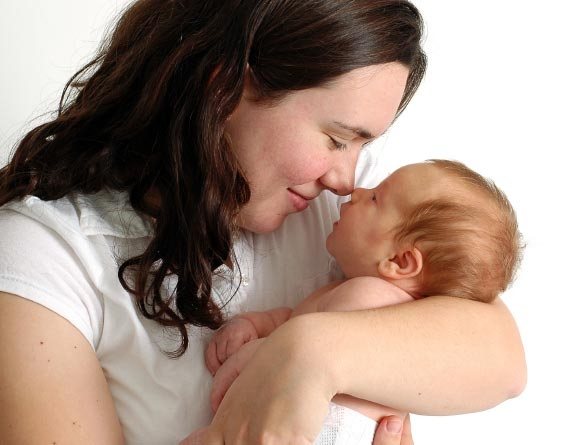
Horror story No. 6. The success of breastfeeding depends on heredity, breast shape and size
Don’t forget, you and I belong to the class “mammals”. Is it logical to say that mammals may not have milk?
In fact, only 3% of women may actually have problems breastfeeding (and these are mostly women who have had some kind of serious breast disease).
As for breast size, it depends on the amount of fatty tissue and has nothing to do with the amount of milk. The shape of the breast and nipple are not of fundamental importance. The nipple is simply a guide for the baby where to latch onto the breast.
Horror story No. 7. When breastfeeding, mothers experience catastrophic hair loss
Hair loss can actually occur because... in itself is a very common reaction of the female body to pregnancy and childbirth. Just take care of a healthy diet (minerals, vitamins) - and very soon everything will return to normal!
Horror story No. 8. Breastfeeding during illness is contraindicated
In fact, it is breastfeeding during the mother’s illness that allows the baby to either not get sick or get better faster.
The fact is that with milk the baby receives antibodies to infections, which allows him to successfully cope with them. So, during illness it is necessary to feed! Just be sure to remind your doctor that you are breastfeeding so he can prescribe medications that are compatible with breastfeeding.
Irina Gordienko, psychologist
Recommended programs
- Care for problem skin with acne
- Oily skin care
- Intensive skin renewal
- Regular care for combination skin
- Teenage acne. Method “5 lotions +”
- Moderate ACNE
- Severe ACNE
- Correction of hyperpigmentation
- Express care: three lotions
- Moisturizing + lifting
- Eyelid skin care
- Home cleaning
- Anti-dandruff
- Combined peeling for face and neck skin
- Seborrhea, mild ACNE
- Whitening
- Anticomedone

